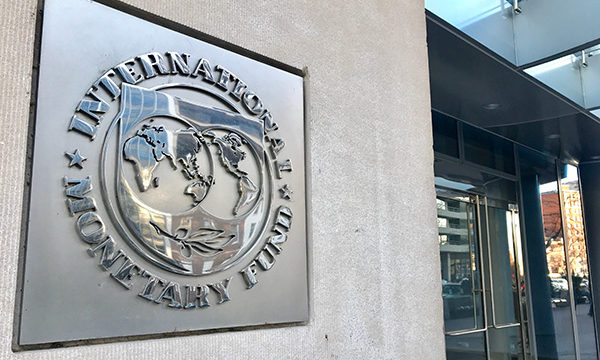The International Monetary Fund (IMF) has warned Malta that it must improve its productivity and accelerate the green transition to build an economy that is sustainable in the long-term, while praising its resilience to external shocks and a strong post-pandemic recovery.
However, it noted that inequality is on the rise and pointed out that the Government must rein in spending if it hopes to bring inflation under control.
In a press release published on Monday (yesterday), the IMF commended Malta’s “impressive recovery from the pandemic and […] resilience to shocks resulting from Russia’s invasion of Ukraine.”
The strong post‑pandemic recovery came “on the back of fiscal support, a persistent inflow of migrants, a strong recovery in tourism, and robust consumer demand,” it said.
“Solid growth” is expected over the medium term, with downside risk due to spillover effects from a possible escalation of Russia’s war in Ukraine or of the Israel-Gaza conflict, as well as a deeper-than-expected economic downturn in Europe. Meanwhile, domestically, wage and inflationary pressures could be higher and more persistent, warned the IMF.
On the other hand, lower-than-expected commodity prices would help decelerate inflation, ease fiscal pressures, and boost growth, it said.
“The challenge for the medium term is to ensure a robust policy framework to foster strong, socially- and environmentally-sustainable, and inclusive growth.”
Tackling the subject of inclusive growth in more depth in the full report, the IMF warned that income inequality, after accounting for social transfers, has exceeded the EU average since the pandemic. The Gini coefficient is roughly 45 in Malta, compared to the EU average of 50; however, while the local rate drops to around 31 once social transfers like welfare are taken into accounting, while the EU average drops to around 29.
The IMF also stressed the need for leaner Government spending, singling out the subsidy on energy for placing “a substantial burden on the budget” and “limiting fiscal space for supporting productivity‑enhancing reforms.” It recommended that such subsidies be phased out while increasing targeted support for vulnerable households.
The need for fiscal consolidation to reduce inflationary pressures is all the more important, continued the organisation, since monetary policy set by the European Central Bank is having a very limited effect. In fact, borrowing costs in Malta are the lowest for households and the third lowest for companies in the euro area.
Addressing the low pass-through rate in a separate document, the IMF stated that banking sector characteristics may influence pass-through, including its high concentration (with the two largest retail banks, BOV and HSBC, accounting for around 50 per cent of total bank assets) and its ample liquidity shielding borrowers from the impact of high interest rates.
Quoting the Central Bank of Malta’s estimation that the direct impact from rising rates on economic activity and inflation would be quite limited, the IMF concluded that “fiscal policy should play an important role in macroeconomic stabilisation.”
Looking forward, the IMF continued: “Raising productivity growth and accelerating the green transition are crucial to ensure sustainable and inclusive growth over the longer term.”
It noted that Malta’s Recovery and Resilience Plan will deliver crucial reforms and investments in digitalization and green transition.
“However, more efforts are needed to enhance governance and anti‑corruption frameworks, promote research and innovation, address skill gaps, accelerate decarbonisation and climate resilience, boost investment in renewables, and strengthen education outcomes—overall and for immigrant students.”
Labour Party European Parliament manifesto: What’s in it for businesses?
Looking ahead, Prime Minister Robert Abela pledges new opportunities on the commercial and social sphere
WATCH: MEPs in dialogue – Enhancing Europe
The fourth in a series of debates designed to engage citizens in the lead-up to the MEP elections
BELS CEO: Unlocking the power of customisation, size, and passion
Rebecca Bonnici, CEO of BELS, discusses bespoke corporate language training and credits success to their passion and size






